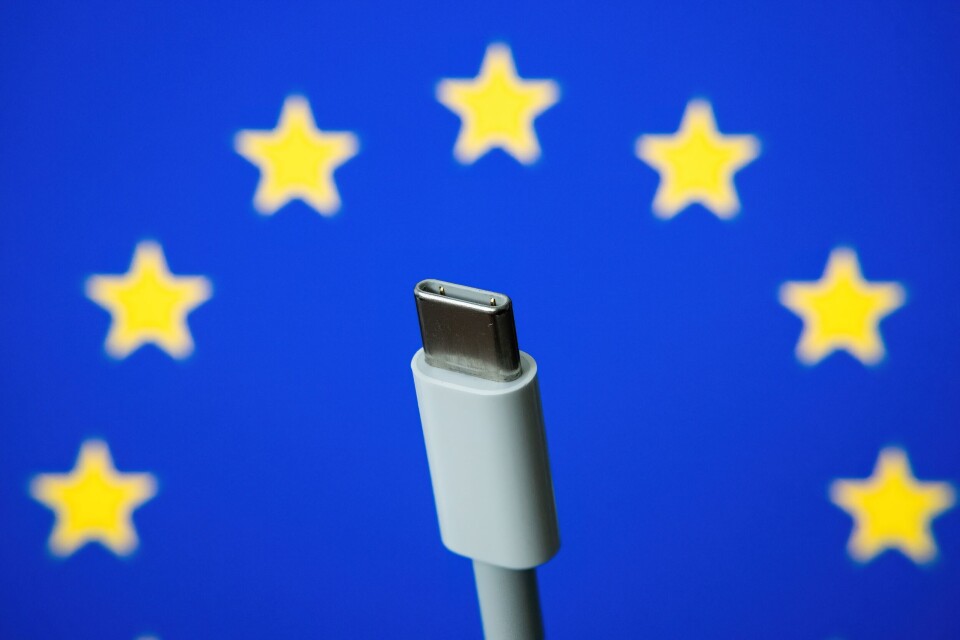-
Is it time to stop changing the clocks in Europe?
Campaigners say it would help improve health and also reduce traffic accidents
-
Gisèle Pelicot memoir hits sales top spot in France
The book, which has been translated into 22 languages, left Queen Camilla ‘speechless’
-
New tax on deliveries from outside EU: How will it affect customers?
The new charge will apply to all deliveries valued under €150
Phones, cameras, tablets: A universal charger system voted in by EU
It will require devices – including Apple products – to have USB-C ports and will save waste amounting in weight to that of the Eiffel Tower every year, says one campaign group

A universal charger for smartphones and other devices is set to be introduced in Europe from 2024, the EU has decided, in a move that will save 11,000 tonnes of waste per year.
The universal charger will standardise charging across smartphones, tablets, consoles, wireless headphones, e-readers, digital cameras and other devices as opposed to the current system, in which different brands of devices often require different chargers.
This is especially true for Apple iPhones, which use a different charger (lightning) than their Android counterparts (usually micro-USB, USB-C or USB-3)

Image: iunewind / Shutterstock
In a statement, the EU parliament said: “Under the new rules, consumers will no longer need a different charging device and cable each time they buy a new device and will be able to use a single charger for all their small and medium-sized portable electronic devices.”
It specified that: “All devices must be equipped with a USB-C port, whatever their manufacturer.”
USB-C is usually considered to be a very fast type of charger. The EU said that all devices must also have a standardised charging speed to avoid problems between chargers.
People in the EU currently spend around €2.4billion per year on chargers alone. The new rule is expected to help the public save €250million annually, the European Commission said.
The weight of the Eiffel Tower
The decision has been welcomed by Samuel Sauvage, co-founder of the French group Halte à l’obsolescence programmée (HOP, Stop planned obsolescence).
Planned obsolescence is a common practice in the manufacture of goods, in which they are designed to break after a relatively short amount of time, meaning the consumer has to buy a new version of the item.
Mr Sauvage told FranceInfo that the EU decision meant that “we can be very happy we will put an end to this waste”. He said: “We will save 11,000 tonnes each year, which is the weight of the Eiffel Tower.”
The idea was first proposed by the European Commission in 2009, but it was met with strong opposition from industry bodies, and it took until this month for an agreement to be found.
Mr Sauvage said that the decision showed that the EU works and has “sufficient weight” to bring about change.
He said that the changes would primarily affect Apple devices, which he said use a different charger as a means to “capture consumers, who, once they have all these chargers, feel a bit obliged to remain as a customer of this brand”.
He said that the decision would “free” up consumers, who would have more choice about which brand to buy, and who could also lend chargers between people more easily.
Calls to go further
Mr Sauvage is now calling for the EU to do even more to reduce waste.
He said: “We've looked at the charger, now let's look at the devices, let's look at their lifespan, how do we inform the consumer to show whether it will be repairable or whether it will be durable?
"Let's look at the warranty and try to promote smartphones that will last longer. We can go even further. But this is already a good step forward."
He added that he hoped the new measure would be enacted quickly.
The EU has said that all manufacturers must have made the changeover “within 40 months of the bill coming into force”, meaning 2026 at the latest.
What should people do with their old chargers when the measure comes into force?
Mr Sauvage advised consumers who have old chargers – whether now or in the future – to recycle them at specific collection points and not to place them in usual bins.
He said: “We often see [such containers] at supermarkets, and there are places that collect them. It means that they will be recycled responsibly. Chargers can often contain metals that are extremely polluting.
“So we have to be very careful about not disposing of them in an ordinary bin.”
Related articles
French pensions to be tied to inflation in July, labour minister says
France’s pension top-up aid unclaimed by 50% of people, study shows
























